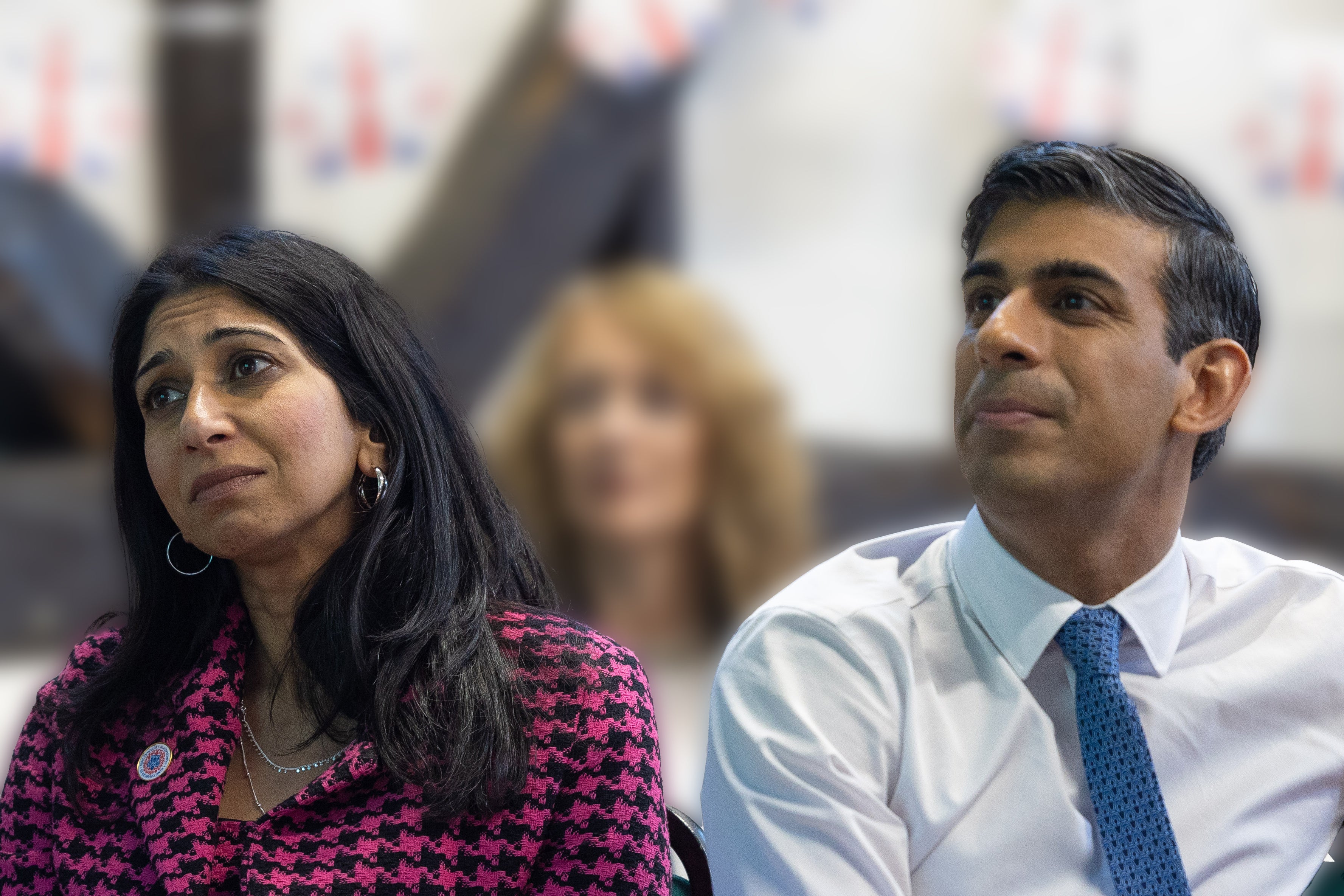Hundreds of modern slavery cases on hold after Home Office admits ‘unlawful’ guidance
Suella Braverman’s lawyers conceded legal challenge from people refused protection under new ‘objective evidence’ test

Hundreds of modern slavery cases will be put on hold after the government admitted its own guidance for considering victims’ claims was unlawful – in a fresh blow to its “stop the boats” pledge.
The admission means the Home Office must stop refusing new claims until it draws up new instructions for officials, piling more pressure on the growing backlog of cases already taking an average of 18 months to decide.
It comes just days after the government’s deal to deport asylum seekers to Rwanda was ruled unlawful by the Court of Appeal, as a separate backlog of asylum cases soars to new records.
The government changed Home Office guidance in January requiring claimants to prove they are victims by submitting third-party evidence of modern slavery and trafficking. The move came after ministers claimed small boat migrants were “abusing” modern slavery protections to claim asylum – something the statistics watchdog found no evidence of.
But last week, the government caved on a legal challenge by two people who were refused protection under the new threshold.
They argued that the guidance breached the European Convention on Human Rights, and was unfair and “irrational” because genuine victims would not immediately have evidence of being trafficked.
A day before the case was due to be heard by the High Court, the government conceded and said it would be withdrawing guidance.
As officials scramble to rewrite a lawful version, no new victims can be refused protection under modern slavery laws.
More than 1,400 of those decisions were made in the first three months of the year, meaning that for every day the bar is in place a backlog of around a dozen decisions will build.
The Home Office is reconsidering the cases of the two victims who brought the legal challenge, and anyone else refused under the same guidance can apply for their case to be reviewed.
Shalini Patel, a solicitor involved in the legal challenge, said: “It should have been evident from the outset that the requirement for trafficking survivors to provide objective evidence was always going to be impossible and cause survivors of trafficking to fall at the first hurdle.

“Survivors of trafficking cannot obtain objective evidence within the required five working days for numerous reasons. Those who are being exploited do not gather evidence of their exploitation whilst they are being exploited.”
Those who have their cases refused are left without any professional counselling, safe accommodation, financial support and protection from abusers.
Official figures show that when the requirement for “objective evidence” from slavery and trafficking victims was introduced in January, the number of negative decisions rocketed.
In 2022, 88 per cent of reasonable grounds decisions were positive, but in the first three months of this year that figure dropped to 58 per cent.
Dame Sara Thornton, the former anti-slavery watchdog, said “alarm bells should have been ringing loudly in the Home Office” as soon as they saw the dramatic shift.
“But yet again it has been courageous survivors who have challenged the Home Office decisions and caused this change of approach,” she told The Independent.
“It is extremely concerning that many survivors of serious crimes appear to have been denied support and protection since these changes were made.”

Dame Sara’s former post as Independent Anti-Slavery Commissioner remains empty a year and two months after her term ended, after the appointment of a successor was delayed by Suella Braverman.
It means that no independent watchdog has been in place during the consideration of the unlawful guidance, the drawing up of the Illegal Migration Bill to deport all small boats migrants to Rwanda and a linked expansion of the Rwanda deal to allow the deportation of trafficking victims.
Maya Esslemont, director of anti-trafficking group After Exploitation, said the government had created “unrealistic burdens of proof” for people who may have been rescued from their abusers days before.
“Survivors need more support, earlier, in order to gather evidence now demanded of them, but their support is withheld unless they can provide a high level of evidence,” they added. “This was never a sustainable situation, and highlights the lengths this government is willing to go to in order to decimate modern slavery protections.”
Esslemont called for all those rejected under the unlawful guidance to be offered the chance of reconsideration.
In legal correspondence, the Home Office said it was its “intention” to publish the new version by 10 July, and that in the interim period no cases would be rejected.
A Home Office spokesperson said: “Modern slavery is a barbaric crime. We are committed to tackling it and ensuring victims are given the support they need to begin rebuilding their lives.
“The National Referral Mechanism provides support to thousands of victims of modern slavery each year, but some people seek to exploit the system, which is why we have taken steps to prevent this.
“The Home Office regularly updates statutory guidance and we will shortly issue a further clarification to the current guidance on modern slavery claims.”
Join our commenting forum
Join thought-provoking conversations, follow other Independent readers and see their replies
Comments


Bookmark popover
Removed from bookmarks